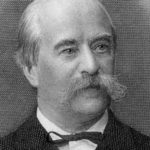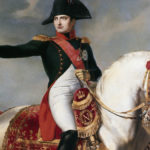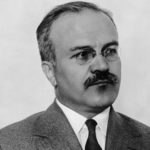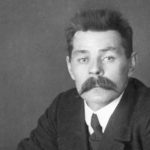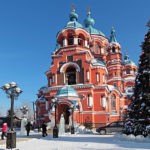Interesting facts about Grigory Rasputin
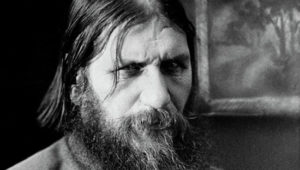 Grigory Rasputin, the famous courtier, remained in history as an extremely ambiguous personality. Being a man with a strong character, he fully justified the positions he held, but at the same time, certain features of his character helped him to gain many ill-wishers.
Grigory Rasputin, the famous courtier, remained in history as an extremely ambiguous personality. Being a man with a strong character, he fully justified the positions he held, but at the same time, certain features of his character helped him to gain many ill-wishers.
The soloist of the band Boney M, who during the performance of the song Rasputin often acted in the image of her protagonist, died in St. Petersburg on December 30 – Grigory Rasputin was killed in the same city and on the same day, almost one hundred years earlier.
The peasant surname “Rasputin” does not come from the concept of “debauchery,” but from the words “mudslides” or “crossroads”.
The exact date of appearance of Rasputin is unknown – in different sources the dates from 1864 to 1872 appear. During his lifetime Rasputin himself tried with all his might to keep the role of the “old man” and did not bring clarity to this question, deliberately exaggerating his age.
After the revolution, a group of workers dug Rasputin’s body from the grave to burn this “friend” of the imperial couple. When the corpse engulfed the fire, the mysterious old man allegedly sat in a fire, than scared the assembled proletarians to death. This incident has a completely scientific explanation – from the heat of the deceased’s tendon contracted, bending the body in the lower back, and the legs in the lap.
After a youth spent in pilgrimages to holy places, Rasputin arrived in St. Petersburg and got acquainted with the local clergy. Soon he became extremely popular in high society as “holy fool”, “God’s man.”
Rasputin’s meeting with the emperor was organized by the daughters of Montenegrin nobleman, whom he was introduced to.
The Empress patronized Rasputin, as he was the only one helping the heir to the throne, Alexei, to fight hemophilia, a genetic disease that manifested itself in the incoherence of blood. There is evidence that under the influence of Rasputin’s prayers the wounds of the prince were healed.
After several years of metropolitan life, the mystical elder petitioned for a change in his name to “Rasputin-Novyh” – he lamented that his namesake is the majority of the inhabitants of his native village, so confusion may arise. The petition was granted.
When in the village to Rasputin, who temporarily left St. Petersburg, the women of the capital began to travel massively, the church put forward a series of accusations against him: in healing without a diploma, excessive love for women’s kisses and in general in debauchery. After a thorough investigation, the case collapsed, since it was not possible to obtain evidence accusing Rasputin. He himself strongly denied all charges.
The Holy Synod warned the emperor about the harmful influence of Rasputin and recommended breaking off all ties with him. After Rasputin had a fight with the bishop, the “elder” considered it best to go on a pilgrimage to the shrines of Jerusalem.
Rasputin during his lifetime published two books containing, among other things, his prophecies. Some predictions sound like science fiction: Rasputin foresaw the appearance of a monster of “tart”, giant ants and flying frogs. At the same time, his most famous prophecy of the welfare of the monarchs, as long as Rasputin himself was alive, turned out to be frighteningly accurate.
Thanks to Rasputin, the First World War began two years later than he could – he persuaded the emperor not to get involved in the clashes in the Balkans, believing that the war would bring ordinary citizens only suffering.
In 1914, the first attempt was made on Rasputin – a girl later found insane, stabbed him with a knife in the stomach. The treatment lasted a long time, and Russian newspapers devoted much more attention to the health of the “old man” than the murder of Franz Ferdinand.
Rasputin was brutally murdered on the night of December 30 (or December 17 in the old style) in the St. Petersburg palace of the Yusupovs. The circumstances of this crime are still a mystery – if you believe the testimony of the killers, they first poisoned Rasputin, then shot him at least 3 times, then severely beaten, tied up and thrown into the wormwood. High-minded criminals claimed that the “elder” actively resisted them until the very end.
Investigation of the murder of Rasputin lasted two and a half months, but immediately after the abdication of Nicholas II from the throne, he was hastily stopped, and the investigator was placed under arrest.

